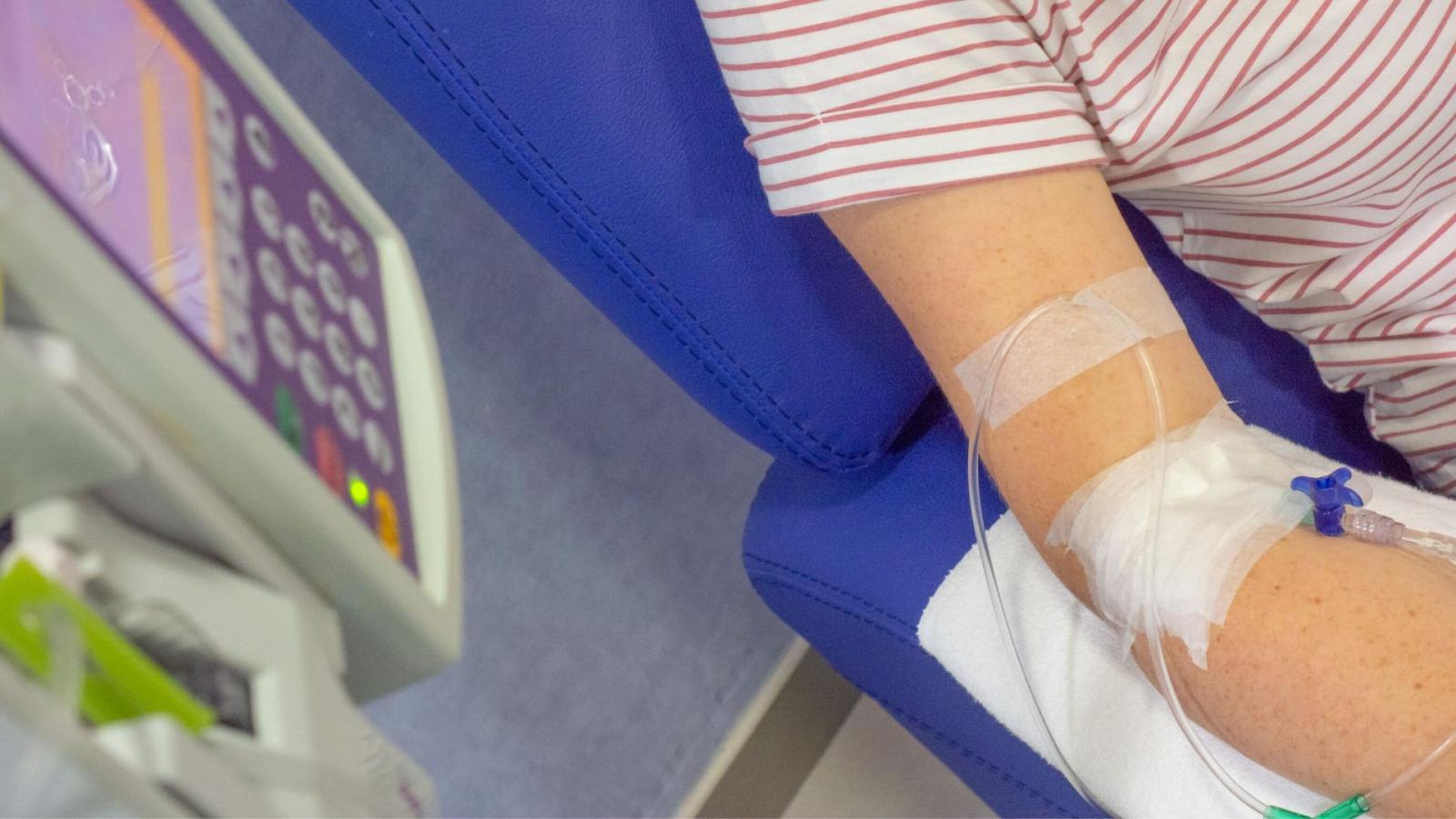Intensive treatments for MDS

On this page:
If you have high-risk MDS, you may benefit from intensive chemotherapy. Intensive chemotherapy uses high doses of drugs to try and clear the diseased cells from your bone marrow. There are 2 main stages of treatment:
- Induction chemotherapy or remission induction: This is an intense dosing of chemotherapy, which aims to get rid of all the diseased cells from your blood and bone marrow (remission). Induction usually involves two cycles of a combination of chemotherapy drugs. When the induction is over, a bone marrow test will be done to check if the MDS has gone into remission.
- Consolidation or intensification: After induction, if you are in remission you may have 2 or 3 more cycles of less intense chemotherapy. This is to make sure that any remaining MDS cells are destroyed. Once the diseased cells are gone, it is called remission.
You will need to stay in hospital for about 4‒6 weeks for each treatment block. A small number of people might stay in remission for a long time after intensive chemotherapy, although usually when a donor is available, a stem cell transplant will follow.
Intensive chemotherapy is sometimes also used when preparing for a transplant. It can reduce the amount of MDS cells in your bone marrow before the transplant.
Stem cell transplants
Having very high doses of chemotherapy (and possibly radiotherapy) can destroy the cancer cells with the aim of curing MDS. But this also destroys your stem cells in your bone marrow, which produce blood cells. Transplanting healthy stem cells into your body afterwards means that you can produce new blood cells. This is called a stem cell transplant or bone marrow transplant.
The healthy stem cells usually come from a donor’s blood or bone marrow (allogeneic transplant). Some types of stem cell transplant use stem cells from the person themselves (autologous transplant). Read more about stem cell transplants .
Who is suitable for stem cell transplants?
Stem cell transplants are only suitable for a few patients with MDS. The treatment has many severe side-effects and some patients can become seriously ill from it. Your doctor will discuss transplants with you if you are suitable. Just over one-third of patients with MDS who receive this treatment may be free from the disease over many years.
The disease may come back (relapse) in some cases.

Reduced-intensity conditioning (RIC) transplants
Reducing the intensity of the treatment before the stem cell transplant to cause fewer side-effects.
If you have any questions about your treatment you can also call our Support Line on 1800 200 700 to speak to a cancer nurse in confidence.
For more information
Phone
1800 200 700



